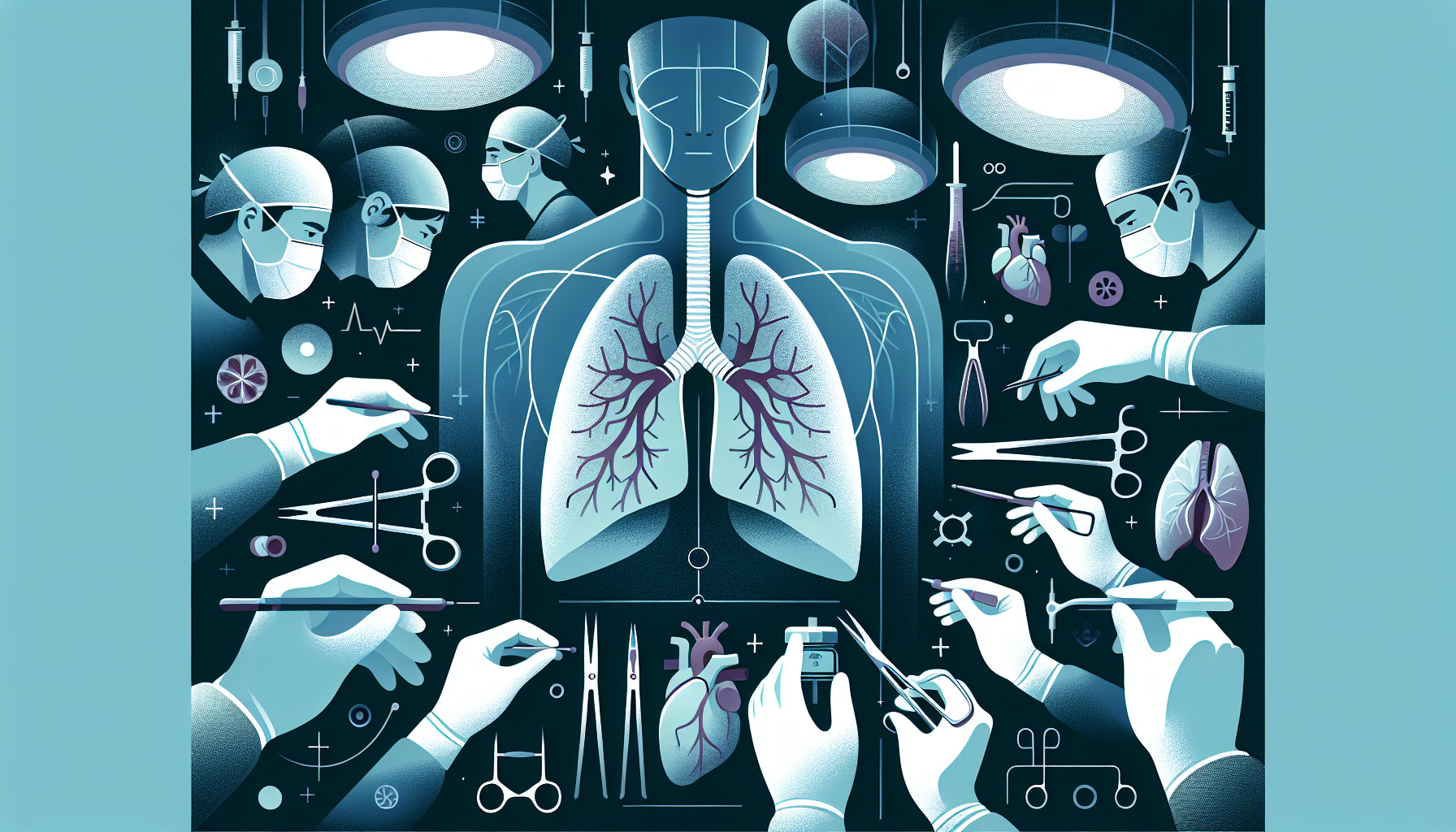Our Summary
Lung transplant patients have a lot to manage after surgery, including taking multiple medications and following complex care instructions. Sometimes, anxiety or other mental stress can make it difficult for patients to remember all the information they’re given.
This study looked at whether using multimedia (like videos, animations, etc.) to educate patients about their care after surgery could help them retain more information compared to traditional methods (like lectures, pamphlets, etc.). The study involved two groups of patients and their caregivers: one group was taught with traditional methods and the other group was taught with multimedia.
The results showed that the multimedia group retained more information, felt less anxious about the surgery, and were happier with the way they were taught compared to the traditional group. Even the caregivers and the transplant team thought the multimedia method was better.
So, it seems that using multimedia to educate lung transplant patients about their post-surgery care can be a great way to improve their understanding and comfort with the process.
FAQs
- Can multimedia help lung transplant patients retain more information about their post-surgery care?
- Did the study find any difference in anxiety levels between patients educated with multimedia and those taught through traditional methods?
- Did the use of multimedia in patient education impact the satisfaction levels of the patients, caregivers, and the transplant team?
Doctor’s Tip
Therefore, it is important for lung transplant patients to ask their healthcare team if there are any multimedia resources available to help them better understand and remember important information about their care. This can ultimately lead to better outcomes and a smoother recovery process.
Suitable For
Patients who are typically recommended for a lung transplant are those with end-stage lung disease who have exhausted all other treatment options and have a limited life expectancy without a transplant. Some common conditions that may warrant a lung transplant include:
- Chronic obstructive pulmonary disease (COPD)
- Idiopathic pulmonary fibrosis
- Cystic fibrosis
- Pulmonary hypertension
- Bronchiectasis
- Alpha-1 antitrypsin deficiency
- Sarcoidosis
- Pulmonary fibrosis due to other causes
Patients who are considered for a lung transplant undergo a thorough evaluation process to determine if they are suitable candidates for the surgery. This evaluation includes assessing their overall health, lung function, and ability to adhere to the complex post-transplant care regimen. Patients who are physically and mentally prepared for the challenges of a lung transplant are more likely to have successful outcomes.
Timeline
Before lung transplant:
- Patient is diagnosed with end-stage lung disease and referred for transplant evaluation
- Patient undergoes extensive medical and psychological evaluations to determine eligibility for transplant
- Patient is placed on the transplant waiting list and waits for a suitable donor
- Patient and their caregivers receive education about the transplant process, post-surgery care, and medications
After lung transplant:
- Patient undergoes surgery to receive a new lung(s)
- Patient is monitored closely in the intensive care unit and then transferred to a regular hospital room
- Patient begins a rigorous rehabilitation program to regain strength and lung function
- Patient must take multiple medications to prevent rejection of the new lung(s) and manage potential complications
- Patient has frequent follow-up appointments with their transplant team to monitor progress and adjust medications as needed
- Patient must adhere to strict infection control measures and make lifestyle changes to support their new lung(s)
What to Ask Your Doctor
Some questions a patient should ask their doctor about lung transplant include:
- What is the process for evaluating me as a potential candidate for a lung transplant?
- What are the risks and benefits of a lung transplant in my specific case?
- What is the expected recovery time and rehabilitation process after the surgery?
- What medications will I need to take after the transplant and how will they affect my daily life?
- What are the signs and symptoms of rejection or infection that I should watch out for?
- How often will I need to follow up with my transplant team after the surgery?
- Are there any lifestyle changes I should make to improve my chances of a successful transplant?
- What support resources are available for me and my caregivers throughout this process?
- What can I expect in terms of long-term outcomes and potential complications?
- Can you provide me with any additional educational materials or resources to help me better understand the transplant process?
Reference
Authors: Gerity SL, Silva SG, Reynolds JM, Hoffman B, Oermann MH. Journal: Prog Transplant. 2018 Mar;28(1):83-86. doi: 10.1177/1526924817746910. Epub 2017 Dec 11. PMID: 29228864
